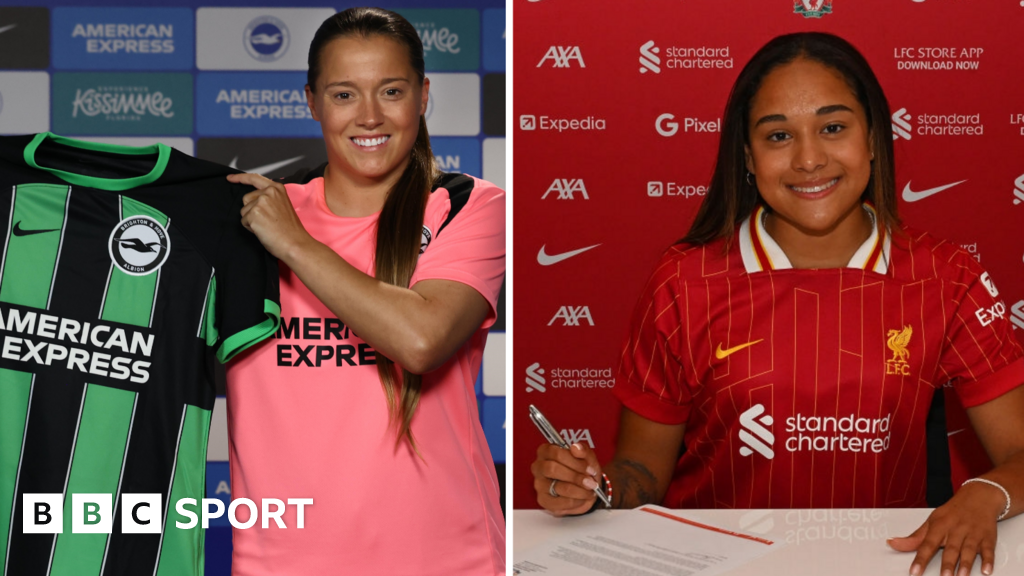Several high-profile players have moved on free transfers already this summer following the expiry of their contracts.
Goalkeeper Mary Earps swapped Manchester United for Paris St-Germain, Vivianne Miedema left Arsenal to join Manchester City, and Fran Kirby signed for Brighton after leaving Chelsea.
But while free transfers have been common in the women’s game for years, things are starting to change – albeit gradually.
The transfer fee world record has been broken four times in the past two years.
Zambia forward Racheal Kundananji is the most expensive women’s footballer, with National Women’s Soccer League side Bay FC having paid £685,000 for her in February.
That beat the record set when England international Keira Walsh moved from Manchester City to Barcelona in 2022 for £400,000.
In June, Liverpool broke their club record by signing Canadian Olivia Smith for £210,000 – five months after Chelsea set a new record for a fee paid by a British team to secure Mayra Ramirez from Levante for more than £400,000.
“Even when you look at clubs with historically smaller budgets in the WSL, they are still paying transfer fees now more often than they ever did,” said Rains.
“Bristol City did when they were in the WSL, and West Ham have paid fees for some of the players I have worked with too. It is happening, but it’s relative to each club.
“At the top, players leave on free transfers because not many clubs can actually afford them. But they are starting to take a leaf out of the men’s game.
“If a club can’t afford to pay full whack, players might wait out another year, leave on a free transfer and agree to receive a hefty sell-on bonus payment instead.”
